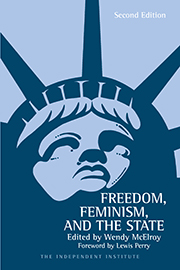Yet another skirmish in the Culture War erupted last Tuesday when a much-anticipated book went on sale: "The Tyranny of Tolerance" by Missouri Circuit Court Judge Robert H. Dierker.
The book’s theme is captured by its subtitle, "A Sitting Judge Breaks the Code of Silence to Expose the Liberal Judicial Assault."
Even prior to publication, however, the book prompted calls for Dierker’s sanction or removal from the bench.
What is going on, and what is likely to be the result?
The bare facts follow.
As a personal matter, Dierker is an advocate of what could be described as right-wing values. Professionally, he is a judge with 20 years experience who was re-elected last month by approximately 70 percent of the vote. In a recent Missouri Bar survey, 90 percent of lawyers said Dierker should be retained. In short, his job performance is generally well rated.
"The Tyranny of Tolerance" expresses Dierker’s experience-based belief that liberals are imposing an ideological agenda through the court system. By interpreting the law in a radical manner, they are essentially rewriting it without going through the legislature or the process of a vote.
The book’s first chapter was circulated in advance to legal professionals for their comments. Entitled "The Cloud Cuckooland of Radical Feminism," the chapter blasts "femifascists" for their role in destroying the traditional role of the courts: to enforce the law without bias.
State Senator Joan Bray, among others, took exception.
"I probably meet his definition of femifascist," she said. Last month, Bray filed a complaint about Dierker with the State’s Commission on Retirement, Removal and Discipline, which has the power to issue a public reprimand and to remove a judge from office.
Bray accused Dierker of violating "Judicial Canon 2.03 Canon B" by using his office for personal gain. She wrote, "Judge Dierker stands to receive monetary gain from the prestige of his office when the book is marketed and touted as the words of a sitting judge thus enhancing its marketability."
With that one accusation, Bray provided enough controversy to ensure the book’s marketability. Dierker is keeping the flames alive through a series of radio and TV interviews this week.
What is likely to occur as a result?
Dierker is unlikely to be removed or even seriously sanctioned even though his critics have some ground to stand on.
Their strongest point is that Dierker tends to mix his personal views with his judicial opinions and that makes for biased rulings. In short, they believe he is not capable of impartially adjudicating a wide range of cases including sexual harassment ones. They point to an order Dierker issued in a 1999 sexual harassment case.
The order’s opening paragraph stated, "From Anita Hill to Monica Lewinsky, the cry of ‘sexual harassment’ has been selectively raised to advance certain groups’ political agendas under the guise of promoting equal opportunity in the workplace, or under the banner of ‘equality’ in academe."
I agree with Dierker that feminism has devastated the legal system but, even with such agreement, I am acutely uncomfortable with this purely political statement within a legal document. It is wrong for liberal judges to use the bench to pontificate; it is equally wrong for conservatives.
When called to task for the language, Dierker wrote, "Samuel Johnson advised that, before publishing anything, you should read through your work, and strike out your favorite phrases. It is sound advice for lawyers and judges."
Nevertheless, the order in question moved from stating personal opinion to offering a reasoned consideration of the points of law.
Moreover, my research has not uncovered a single case in which Dierker was reversed due to bias. Dierker’s great flaw is his tendency to state personal opinion before moving on to the business of law.
Does a strong personal opinion make a judge incapable of rendering an unbiased judgment?
Absolutely not.
Ideally, a judge is an intelligent, aware human being who is conversant with law, social issues and how to weigh evidence. Of course such people will reach conclusions on issues that define the society around them, issues like abortion, the death penalty, and sexual harassment. It is absurd to demand that judges be moral and political blank slates; it amounts to a demand that they be unintelligent, unaware or incapable of reaching a conclusion.
Lack of bias requires one thing only: when on the bench, the law must take priority over personal opinion. When on the bench, Dierker should learn to keep his mouth shut except on issues of law. Elsewhere, he has the same First Amendment right to express his opinion as anyone else.
From a selfish point of view, however, I wish Dierker had not published. His book makes advocacy more difficult for writers like me who agree with him but prefer to reason rather than to rage. Dierker makes some solid points but they will be lost in the circus that passes for political discussion these days. It is a circus Dierker has invited.
As Bill McClellan, a commentator for the St. Louis Dispatch observes, "Thoughtful, biting criticism from the right went out with ‘God and Man at Yale’. William F. Buckley has given way to Ann Coulter."
The left is just as down-and-dirty.
2007 deserves a better opening.









